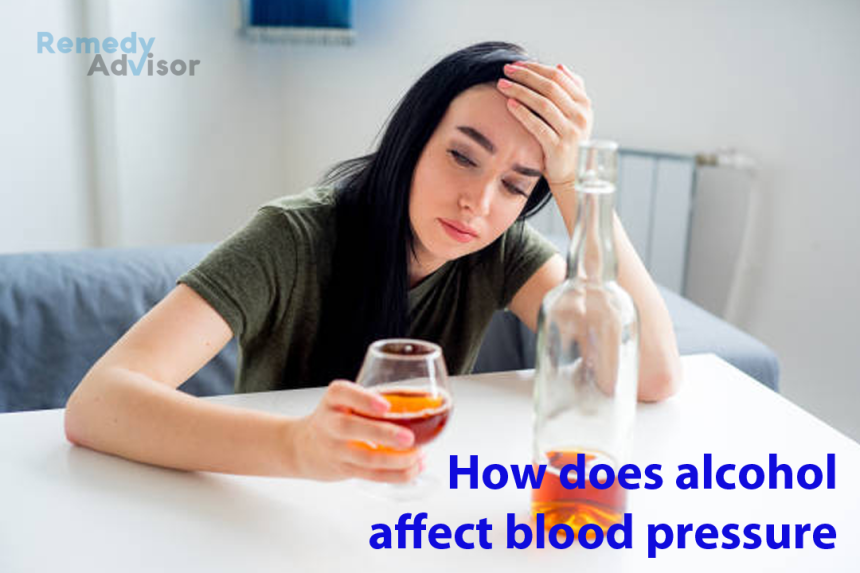If you occasionally enjoy a glass of wine with dinner or a few cold beers over the weekend, the amount of alcohol in those drinks is unlikely to have a significant impact on your blood pressure. While the general recommendation is to avoid alcohol if you have high blood pressure, moderate drinking one drink daily for women and two drinks daily for men younger than 65 (but one for those older than 65) is the amount of alcohol usually suggested. For reference, one drink equals 12 ounces of beer, 5 ounces of wine, or 1.5 ounces of 80-proof distilled spirits.
Reasons to Avoid Alcohol Use
Drinking to excess can raise your blood pressure to unhealthy levels, and binge drinking can result in long-term and even dangerous blood pressure problems, including a greatly increased risk of heart attack and stroke. The exact way alcohol impacts blood pressure is not known, but it may contribute to hardening of the arteries by making the blood vessels more likely to form plaque or for the plaque to rupture.
If you are taking blood pressure medications or any other medications either over the counter or by prescription, use of alcohol can have devastating effects, including dangerous fluctuations in blood pressure and risk of bleeding. Even one or two drinks can cause these serious reactions, especially in people who are elderly or who have other health problems.
But alcohol consumption also has a positive side.
How Much Alcohol is good?
How much impact does light to moderate drinking have on blood pressure? Some research indicates that moderate drinking can lower your blood pressure by 2 to 4mmHg while excessive consumption erases that benefit. Among the scientists who have wondered about alcohol’s impact on blood pressure is a team of researchers at Harvard who looked at alcohol consumption reported by 28,848 women and 13,455 men from two different studies.
At the beginning of the studies, the participants in both groups were free of hypertension, cancer, and cardiovascular disease. The participants were followed up at an average of 10.9 years (women) and 21.8 years (men), and this is what the researchers found:
- Eight thousand, six hundred and eighty women and 6,012 men developed high blood pressure during the follow-up period.
- Light to moderate alcohol intake reduced the risk of hypertension in women but increased the risk in men.
- The threshold above which use of alcohol became a risk for high blood pressure was four or more drinks daily for women versus one or more drinks daily for men.
These findings seem to contradict what doctors typically advise when it comes to alcohol use, especially for women. However, moderation is still recommended, especially since excessive alcohol use has other detrimental effects, including weight gain, damage to the liver, increased risk of some cancers, worsening of depression, greater risk of falls, and more rapid aging.
You may also be familiar with studies stating that drinking red wine can help the heart and blood pressure. That’s because red wine contains potent antioxidants such as resveratrol. However, beer and spirits also contain antioxidants, albeit not the same ones found in red wine. Alcohol also has a blood-thinning effect, which can be helpful in promoting blood circulation and thus assist with controlling hypertension.
All of these findings, however, are not an endorsement to start drinking alcohol if you don’t drink or to drink more if you are a consumer already. Rather, they serve as a reminder that a little alcohol can go a long way when it comes to your blood pressure.
How to Reduce Alcohol Use

If you have an alcohol addiction or are a binge drinker and you have high blood pressure, you are at great risk of stroke and heart attack. While it is important for you to reduce or even eliminate your alcohol use, it’s also critical to do so with professional guidance from a medical doctor or mental health provider. Alcohol withdrawal syndrome is a potentially deadly condition that can occur in anyone who has been drinking heavily for weeks or longer and who then stops or significantly cuts back on alcohol consumption.
If your alcohol use is not severe but you want some ideas on how to reduce your drinking, here are some tips:
Get rid of the evidence
Don’t keep alcohol in the house or, if you do, keep only a small amount and keep it out of sight. The same goes for items that remind you of drinking: beer mugs, wineglasses, and bar items.
Sip sparkling water
When you go to a party or are out with friends, resist the alcohol and ask for sparkling water with a twist of lime or cranberry juice. Some people like sparkling cider, nonalcoholic beer, or alcohol-free wine.
Slow down
When you do drink, sip your drink slowly. Start with a nonalcoholic beverage, then drink your wine or other alcoholic beverage, and finish off the night with another nonalcoholic drink.
Avoid salty foods when drinking
Those salty nuts (which are not good for your blood pressure anyway!) encourage you to drink more, so avoid them.
Identify your triggers and avoid them
Once you know what prompts you to want a drink, you can take steps to sidestep the triggers. If you always reach for the merlot as you prepare dinner after work, substitute a pitcher of iced tea with lemon for the wine bottle. If the gang al- ways meets at a favorite bar on Fridays, suggest a new location or skip the venue until you feel confident you can beat the urge to drink.
Eat lots of fruits and vegetables
What does this tip have to do with alcohol and hypertension? Remember that DASH and other diets discussed in this book stress the importance of fruits and vegetables, and one reason is because they are rich in potassium and calcium. Potassium and calcium are important because they work together to counteract the negative effects of alcohol and help moderate your blood pressure.







